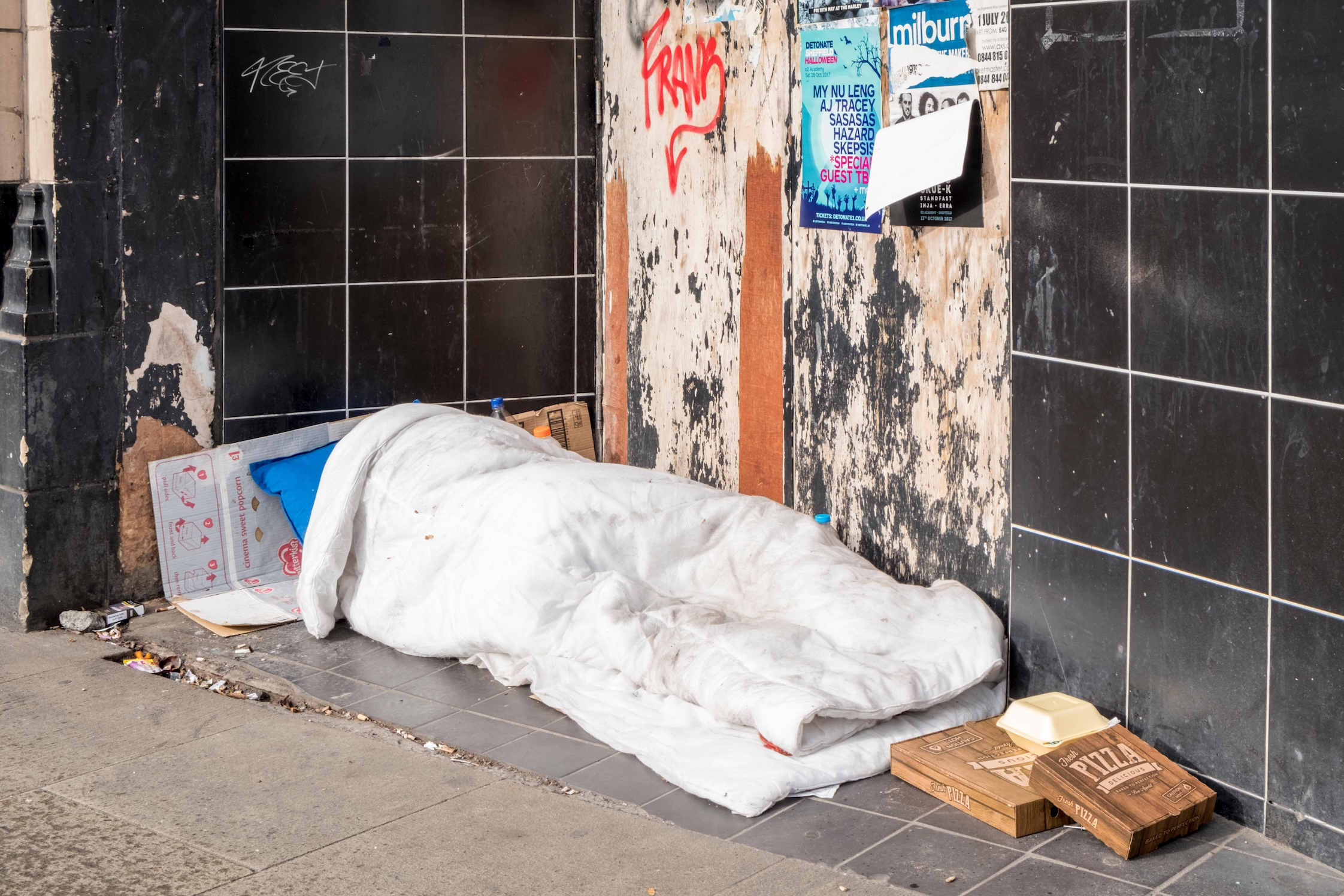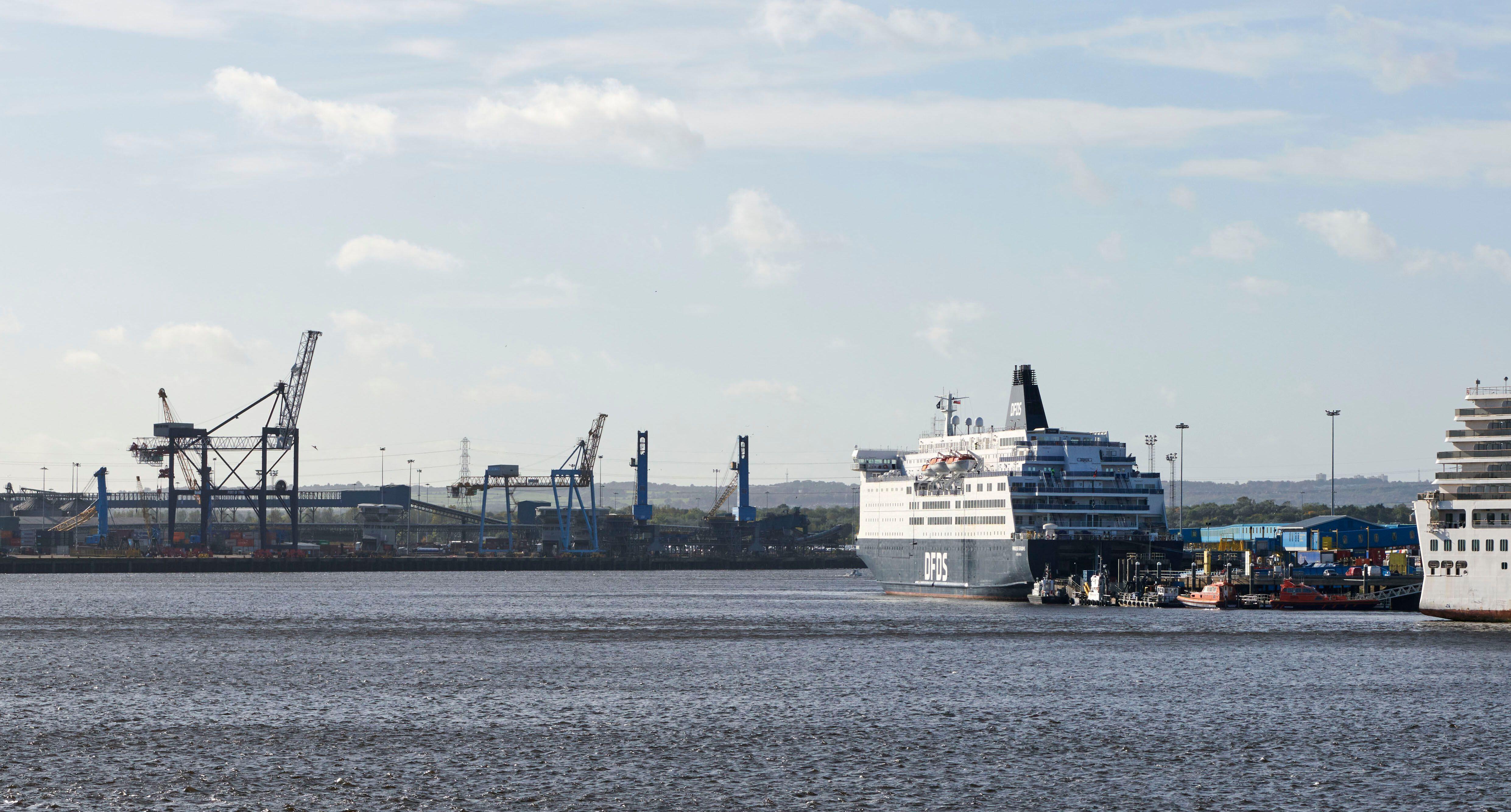Destitution is the great silent issue this election
Starmer has promised no return to austerity politics, but that commitment alone is not enough to heal the problem.
As Nigel Farage desperately tries to centre this election on immigration, our country on the eve of polling day is rather better defined by a completely different phenomenon: destitution. All across Britain, poverty is rising. According to the Joseph Rowntree Foundation, more than one in five people in the UK are now in poverty, which includes 4.3 million children and 8.1 million working-age adults, many of whom are in work and still unable to meet basic expenses such as food and housing costs.
Around six million people, or 9% of the UK population, were in “very deep poverty” at the end of 2023, and it is destitution – characterised by being unable to meet your most basic human needs of staying warm and dry, clean and fed – which is rising fastest of all. Four million people experienced destitution in 2022, which is still rising due to Conservative policies. When national insurance rises occurred last year, economic experts suggested it could push that figure by a third. Importantly, almost three-quarters (72%) of those who are destitute or have experienced recent destitution were in receipt of government benefits.
The so-called safety net that provides the ultimate support for British people is so full of holes that it no longer functions. The people surviving the worst deprivations are known to the government and its agencies, yet they still suffer.
What does this mean in practice? The lowest-income households have been resorting to extreme measures to keep themselves financially afloat. That includes 1.6 million families who have turned off their fridge or freezer, 4.9 million who have not replaced clothing that has been outgrown or worn out, and 3.7 million who have been selling what belongings they still have.
Launching the Labour manifesto, Keir Starmer talked about his big promise to lead children out of poverty through wealth creation. But when he talks about poverty, just as when Rishi Suank talks about it, he is talking about something else – relative poverty.
Relative poverty measures how well a household’s income compares with the average UK standard of living. If you can’t afford access to the internet, to be able to afford to take your child on a day trip once a year, or to clean your clothes regularly (because the laundrette is too expensive or you can’t afford the energy costs to run your own washing machine) then you live in relative poverty, even if you have a stable and comfortable home and can afford to feed yourself.
It might not surprise you to find that the Conservatives don’t believe relative poverty exists, which is why they can claim to have driven down the numbers of families living in poverty even while by almost any other measures, it’s obvious that the reverse is true. Not only has poverty risen rapidly in recent years, but real destitution has become a feature of modern Britain.
Yet, with days until the election, neither party has put forward a plan that acknowledges the depth of the problem – despite voters telling politicians it’s on their minds. Polling on the most important issues for voters consistently cites the cost of living as one of the top concerns among the electorate, alongside the future of the health service, the strength of the economy, immigration and housing. With so many people touched by poverty and destitution, it is witnessed even where it is not personally experienced – by a child’s classmate, by a friend from a Church or Mosque, by a colleague, the sibling of a friend who has been made redundant and hit hard times.
These issues are, of course, all closely interlinked. Since the pandemic, more people are living with long-term physical and mental health conditions, waiting for too long for support under an NHS that has not been fully funded to recover itself from the stress of tackling Covid-19. Living in poverty worsens people’s health too, and the more people we have unable to work due to poor health, the harder it is for the economy to grow. So, no wonder the JRF asked swing voters whether politicians should be concerned about hardship, they heard back a resounding yes. Most of those questioned said they felt addressing these issues should be a top priority for an incoming government, but politicians are not taking it seriously enough.
Starmer has promised no return to austerity politics, but that commitment alone is not enough to heal the problem of destitution. Voters can have little confidence that the issue will be solved when politicians can’t even bring themselves to name it. While lack of trust in politicians is at record lows, speaking honestly about how millions have lost all quality of life in the last decade is one way to win it back fast. Rather than ignoring it or pretending it doesn’t exist, relieving destitution should be the one issue all parties are united on.
The Lead is now on Substack.
Become a Member, and get our most groundbreaking content first. Become a Founder, and join the newsroom’s internal conversation - meet the writers, the editors and more.





